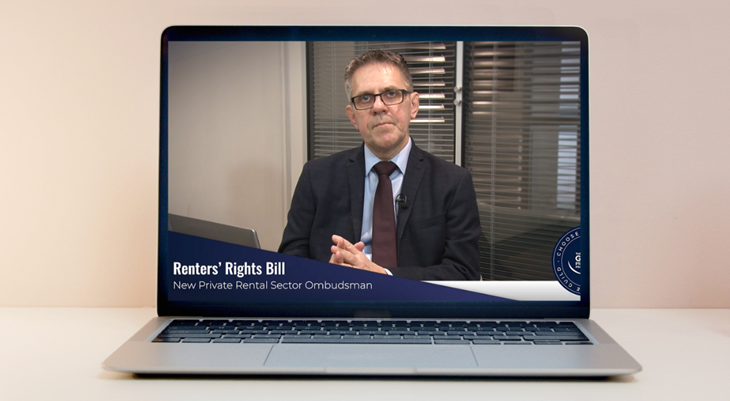Industry experts discuss surge in PI claims and critical cybersecurity concerns for agents
On the latest episode of The Home Stretch podcast, Compliance Officer for The Guild of Property Professionals, Paul Offley speaks to Oliver Wharmby, Client Director at Mint Insurance Brokers about the rise in Professional Indemnity insurance claims, as well as the cyber security risks estate and lettings agents face.
Looking at the rise in PI claims, Wharmby says that people have far more access to information and are more aware of their rights. “There is a lot of legislation that has come in protecting the consumer, which in turn is putting agents under pressure. We are also seeing a growing number of no-win, no-fee law firms actively seeking out tenants and asking them whether their deposit was lodged on time for example, which often results in a claim. It could be the case that the deposit was lodged on time and the prescribed information was correct, but there is an error in the tenancy agreement, which results in a breach of duty. Then you have a solicitor threatening to take the agent to court and the PI claim get lodged. Insurers would prefer not to go to court as the costs would often outweigh the claim, so they settle. The problem is this cycle is fuelling the claims,” he adds.
Continuing, Wharmby says, “What is crazy it that it is often not the agent that has necessarily done anything wrong, and no-one has suffered a loss. For example, if deposit is lodged late, and you get to the end of the tenancy and then the deposit gets handed back, everyone is happy, but they can still bring the claim.”
In response Offley comments, “In the type of work that agents do and the high number of transactions they handle, at some point in their career they are bound to get a complaint or have a claim brought against them. In the situation where an agent receives a complaint, which could possibly result in a claim, at what point should the agent inform their insurer?”
At the earliest possible time, responds Wharmby. “Agents should get their insurers on notice. If it goes nowhere, the insurer is not going to charge the agent, however, if it does, and the agent has not informed their insurer, they may accuse the agent of non-disclosure. The policy is quite clear in that it says the agent must notify their insurer if they are aware of any circumstance that could give rise to a claim. And they must be notified within a practical period of time, which is usually a couple of weeks. So, if you have an angry vendor or landlord, and the matter can’t be sorted out quickly, put insurers on notice to cover yourself.”
Offley and Wharmby go on to discuss several other aspects surrounding PI insurance that impact agents before turning their attention to cyber insurance, something that is particularly important for property professionals given the sensitive information they hold.
According to Wharmby, while cyber security is a relatively young product, it is moving at an alarming pace. “In the last 12 months alone, the shape of the cyber market has changed immeasurably in terms of the way insurers are underwriting the risks. They are far more proactive now then previously, where perhaps they were more reactive. Now insurers are heavily investing in quite sophisticated tools to mitigate threats through scanning of domains, creating risk assessments and getting in early to avoid a claim happening, which is key,” he adds. “Just going back to PI insurance, in the last 18 months there has been a real reform when it comes to cyber with all PI insurers deciding not to cover cyber, so it is now largely excluded from all PI policies. For that reason, it is really important for businesses to think seriously about protecting their IT, especially those with antiquated and outdated systems leaving them vulnerable to attack.”
To listen to the rest of the conversation in full visit The Home Stretch podcast.






